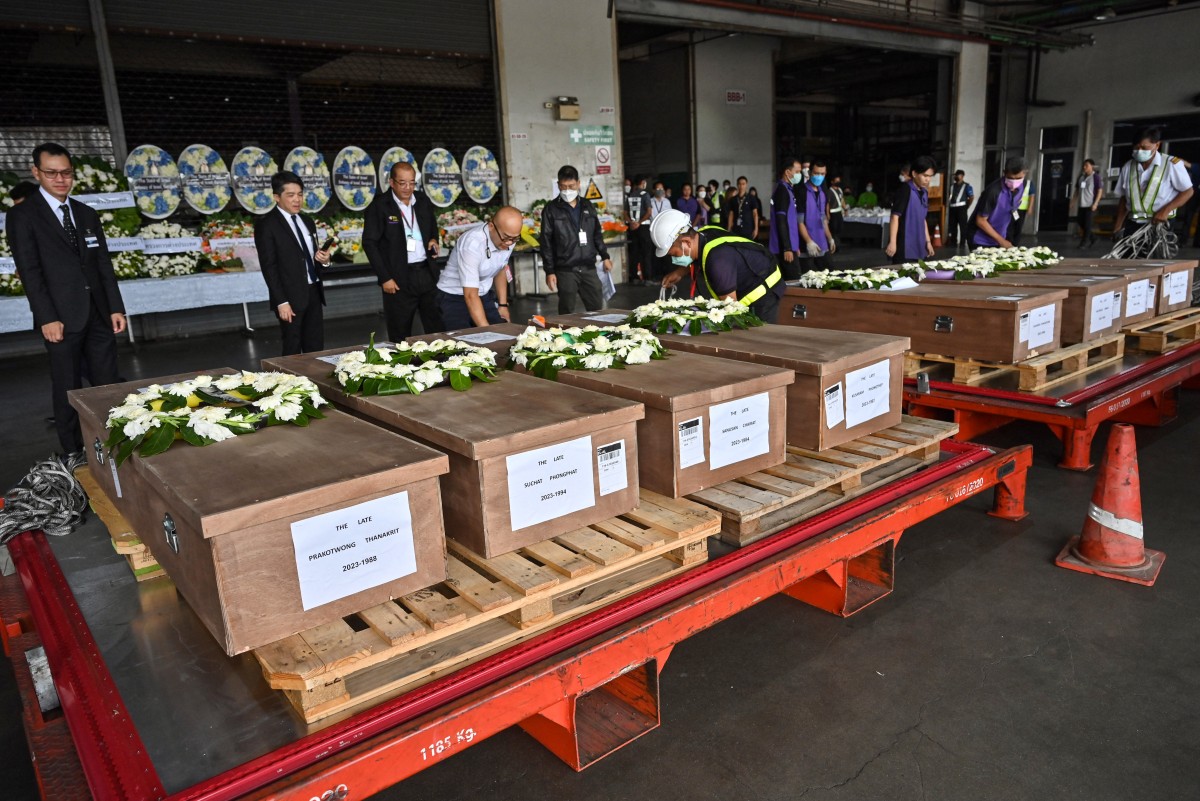Two weeks after the most Israel-Hamas conflict began on October 7, thousands of innocents have died on both sides, but families in two faraway Asian countries are also grieving — particularly in Nepal and Thailand.
Ten Nepali students working in Kibbutz Alumim, a border settlement, were killed, and one is still missing, presumed to have been taken hostage. So far, 30 Thai farm workers have also been confirmed killed by Hamas gunmen in the early morning of October 7, and 19 more were abducted.
According to first-hand interviews and reporting from the Nepali Times, the missing Nepali, Bipin Joshi from Dhangadi, was hiding with other Nepali and Thai citizens when Hamas fighters threw a grenade into their bunker. Joshi had the presence of mind to hurl the grenade out, but another one exploded, killing some of the Nepalis and Thais.
The surviving Nepalis and Thais then fled to another nearby bunker that they thought was safer, but Hamas fighters stormed that one too, and sprayed those inside with gunfire. They then kidnapped seven of the Thais as hostages.
Those are among the total 19 Thai nationals who were abducted, and the missing Nepali is suspected to be among them.
This violence is drawing conflicted reactions in Nepal and Thailand. Media commentators in both countries have pointed out that despite the legitimate grievances of the Palestinian people against Israeli occupation, the indiscriminate slaughter of innocent civilians and foreigners by Hamas was counterproductive.
One Nepali man, Rajesh Kumar Swarnakar, spoke to The Guardian about his brother Mukesh Swarnaka, who was killed in the attack. “I am angry. Why was my brother sent to an area of conflict where he was not safe?” he said. “Nepali lives are seen as so cheap. For us, he was the one who could earn money — he was the hope of the family.”
“Hamas has made a bad name for the Palestinian cause, eliciting condemnation and opposition all the way over here in Thailand,” wrote Thitinan Pongsudhirak of Chulalongkorn University in the Bangkok Post. “For the Thai people, Hamas’ killing spree on Thai workers is unfathomable. Thailand has never done anything to harm Hamas nor caused any trouble for the inhabitants of the Palestinian territories.”
Thai media have quoted survivors who have returned who speculate that Hamas may have specifically targeted Thais because some local Palestinians were resentful of foreigners taking their agriculture jobs away from them. The Israeli government started replacing Palestinian farm and construction workers with migrant labor from various Asian countries after a spurt in militant attacks during the 1987 Intifada.
While the Nepalis in Israel were mainly young university students studying agriculture on 11-month “earn and learn” schemes in Israel, most of the Thai workers were long-term farm workers.
There are an estimated 30,000 Thai workers in Israel’s farms, and 8,400 of those in the conflict zone are now asking their government to urgently repatriate them. Some 700 arrived in Bangkok on charter flights on Friday, October 20. The bodies of eight killed Thai workers were also flown in, while the others will be sent home after being identified.
There were 265 Nepali students in various parts of Israel, and 18 of the 10 who were killed were in Kibbutz Alumin. Most of them were repatriated to Kathmandu on a Nepal Airlines flight on October 12. Four of the bodies of Nepalis arrived in Kathmandu on Sunday, October 15.
The Nepalis who were killed were primarily from poor farming families in the remote western districts of Nepal. Most of the Thai farm workers are also from Thailand’s poorest northeastern regions.
In Nepali, stories of good samaritans like caregiver Prabha Ghimire and others, who have helped wounded Nepali workers in hospitals in Tel Aviv have been going viral. There have also reportedly been many Thai women in Israel who have gone out of their way to help their compatriots caught up in the war.
Viphavadi Vannachai, 40, a Thai married to an Israeli citizen, traveled to dangerous areas on the Gaza border to rescue stranded workers, help the wounded, and assist with repatriation of those who wanted to return.
Thai families of those taken hostage have pleaded for their release, saying they had “nothing to do with the Israel-Palestine conflict” and were there “simply there to earn money.”
